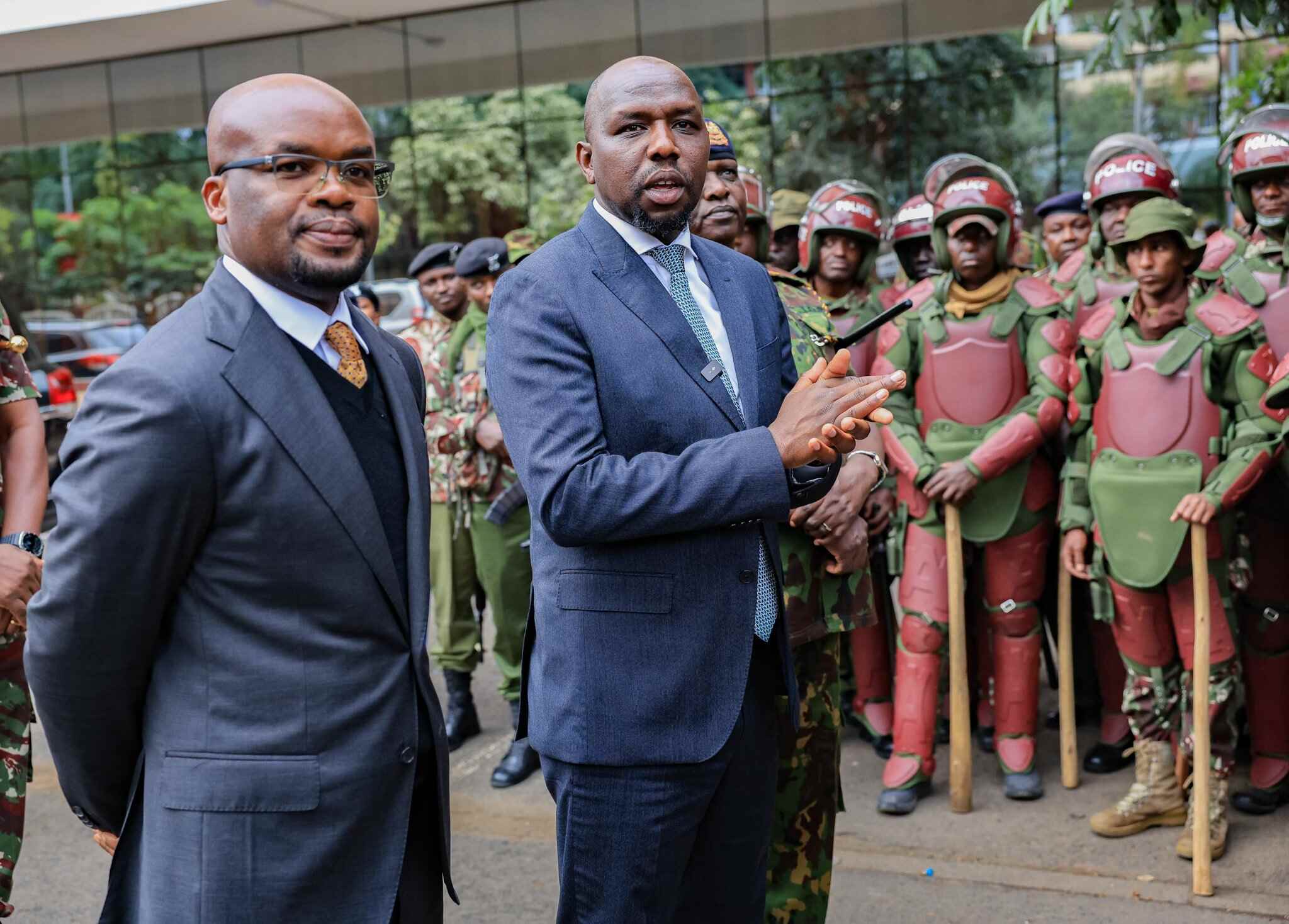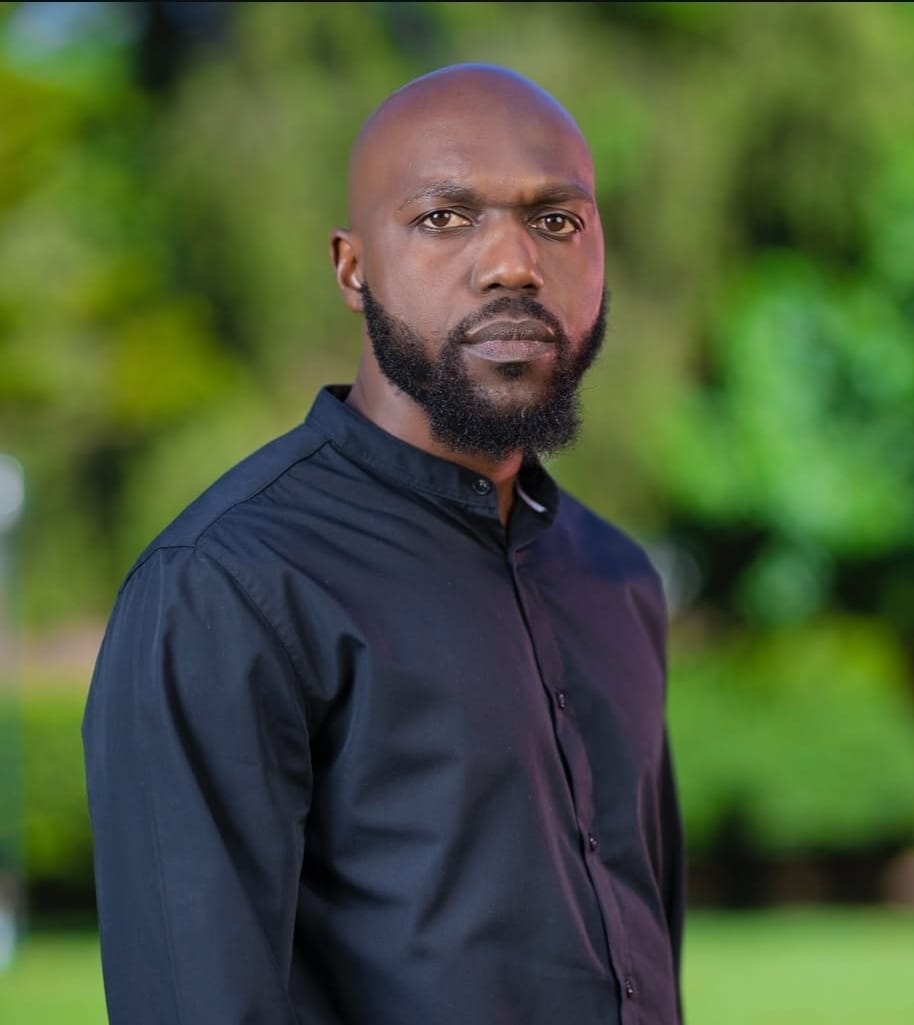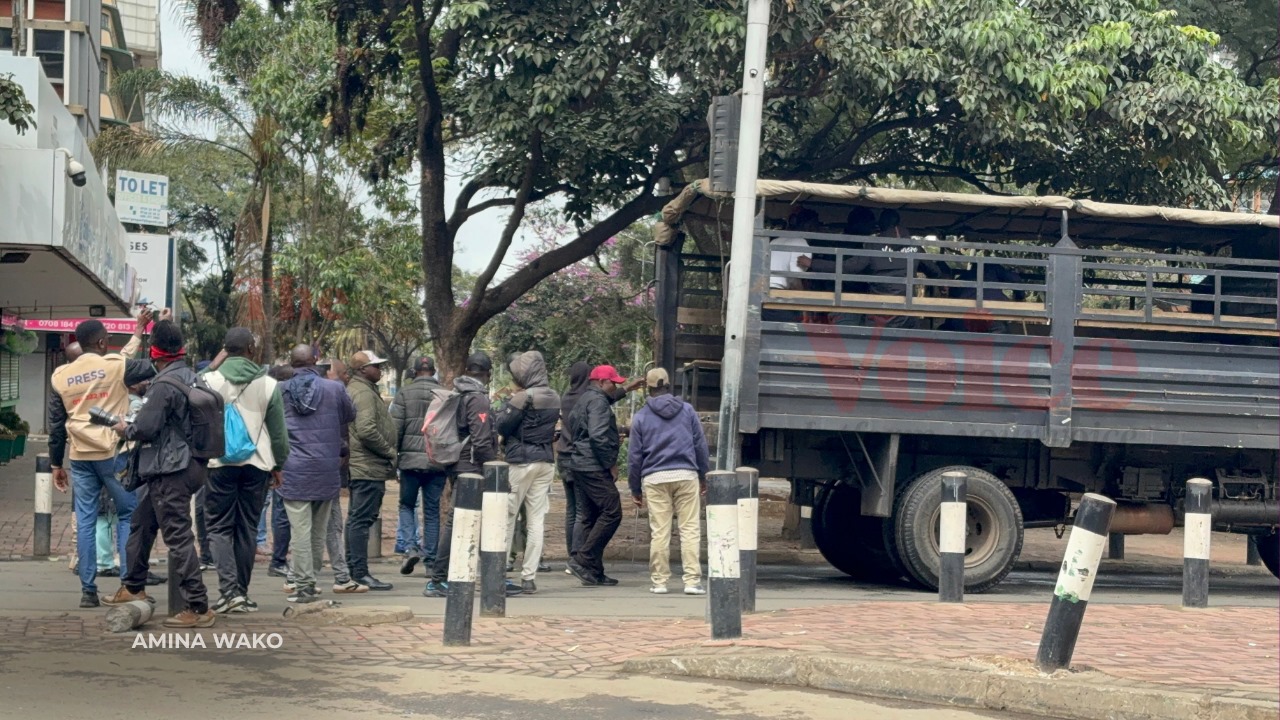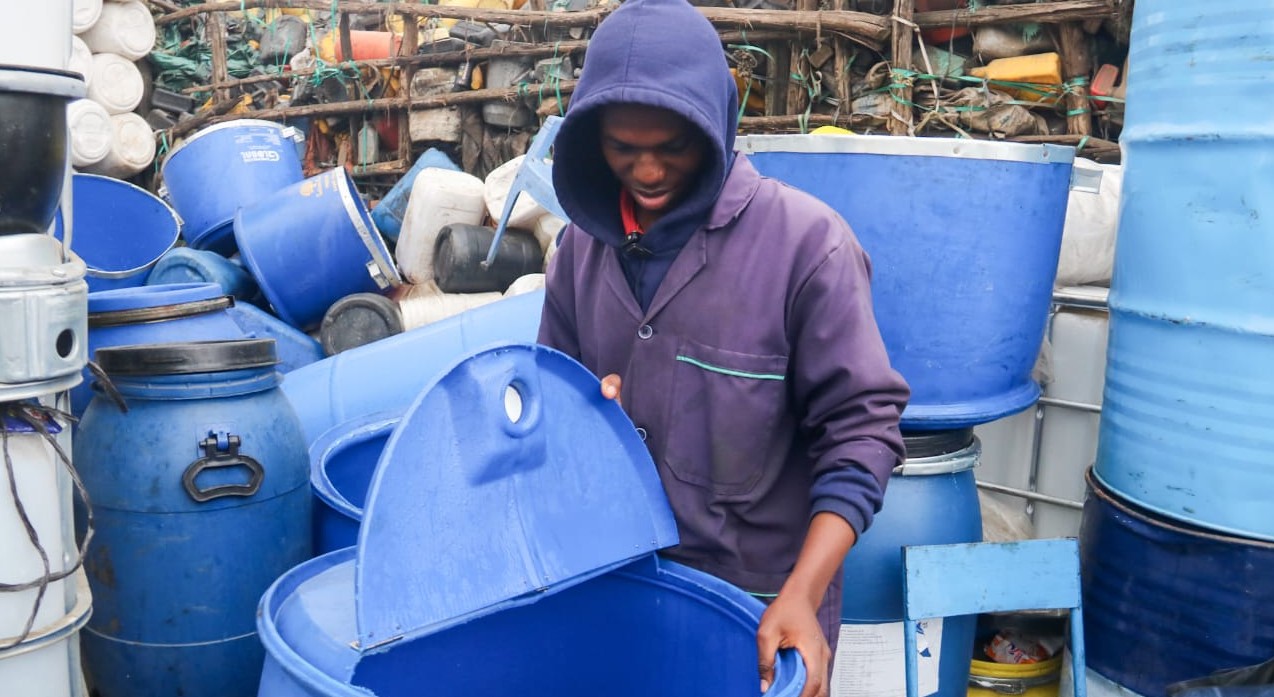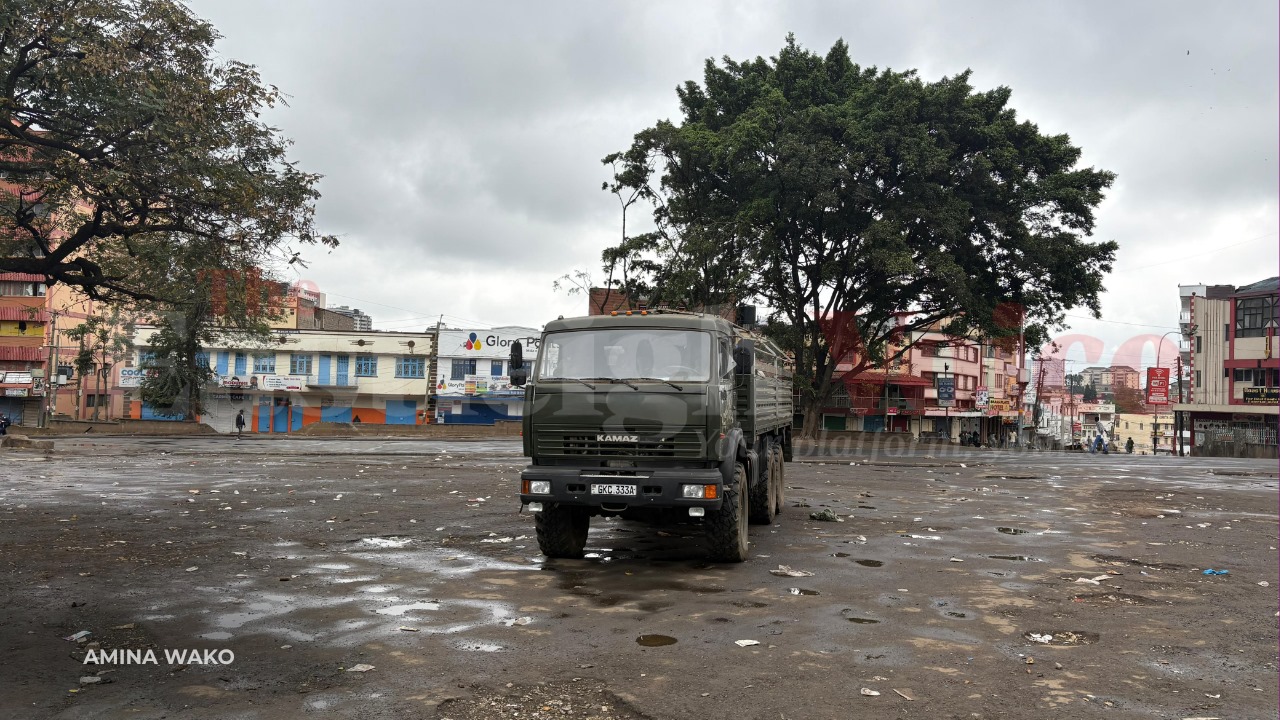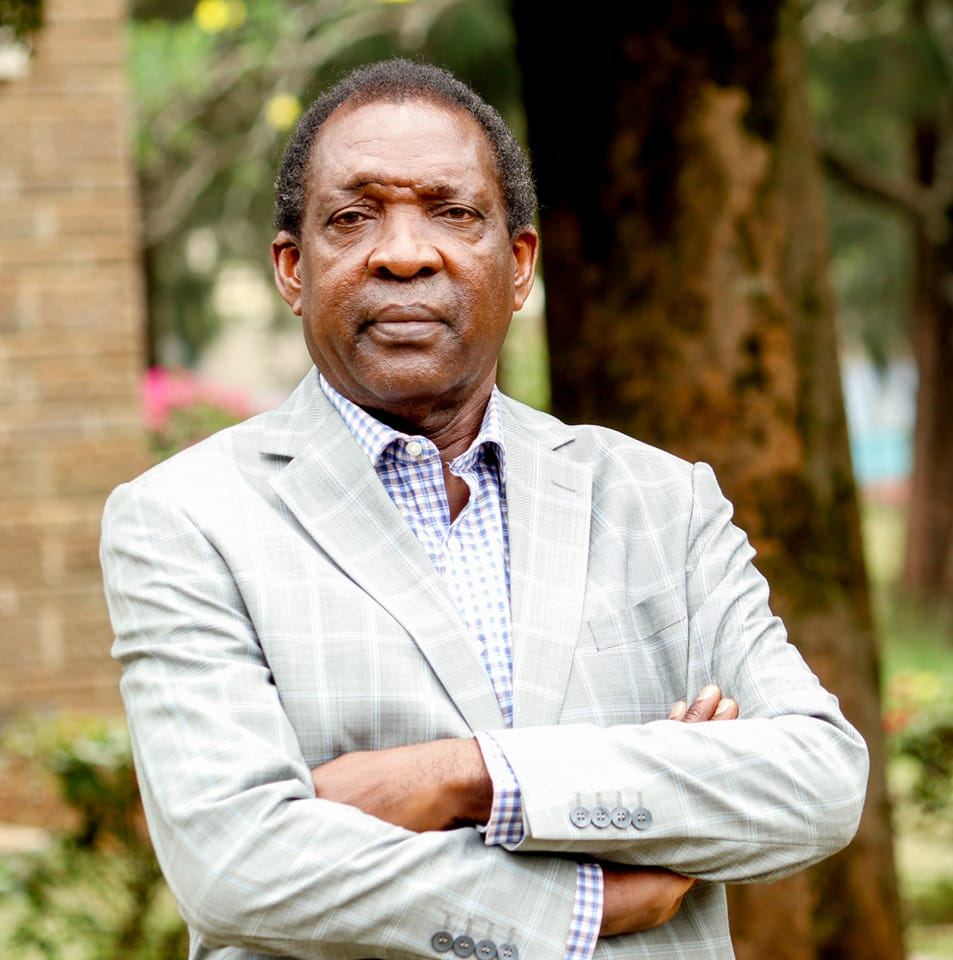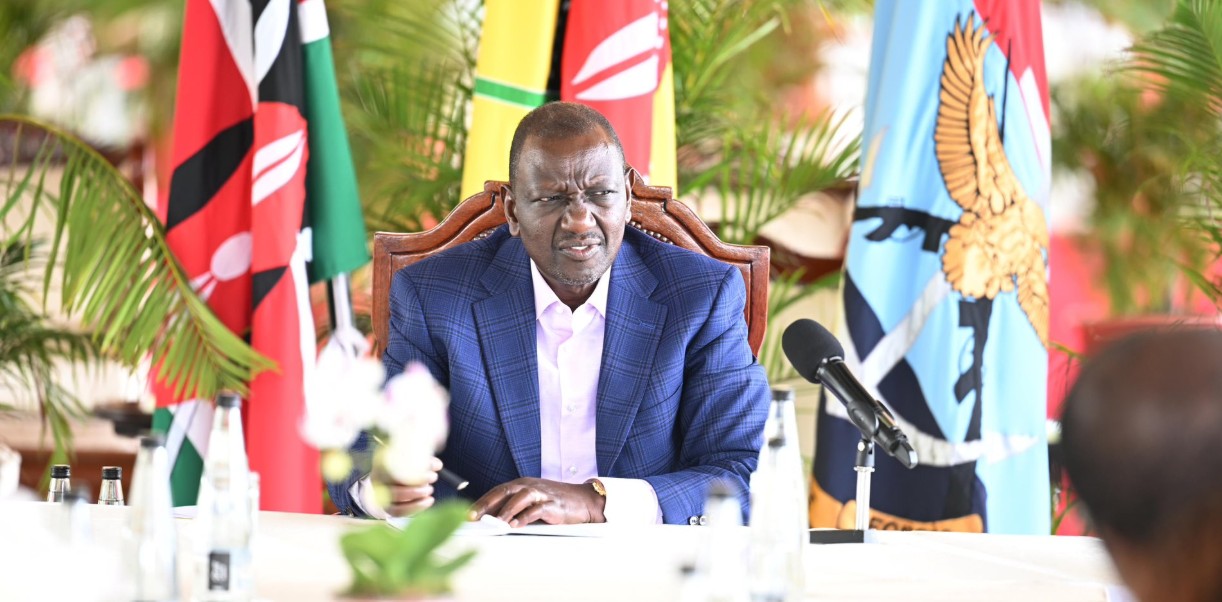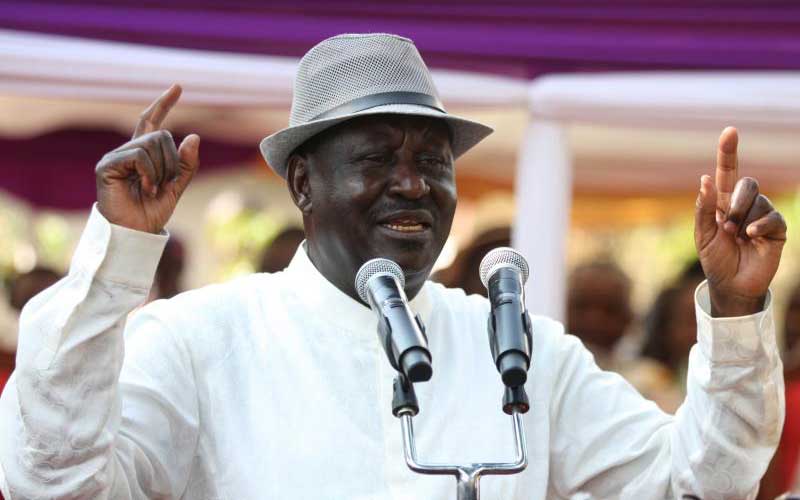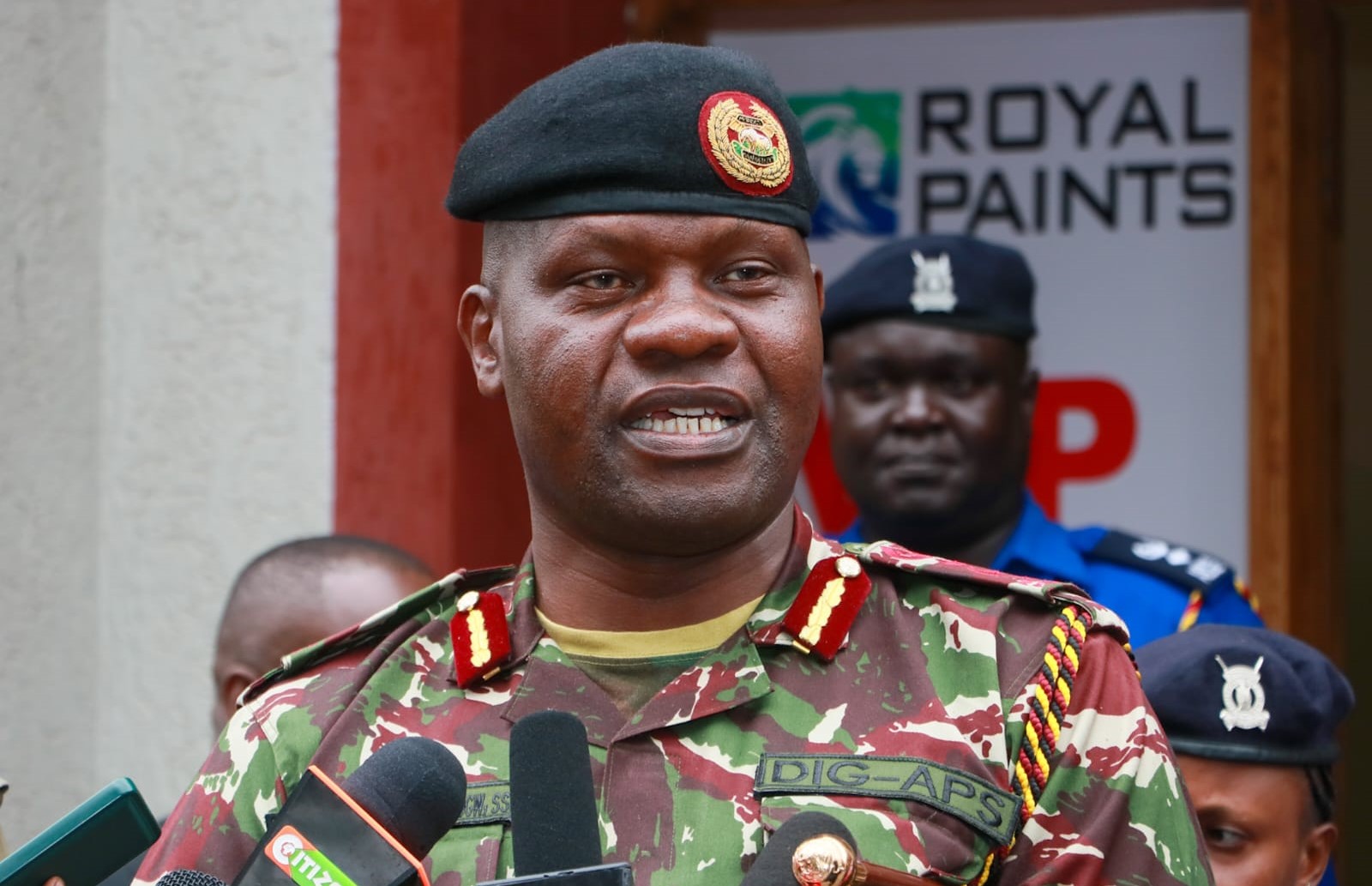Saba Saba: Raila calls for formation of ‘national conclave’ to address national grievances
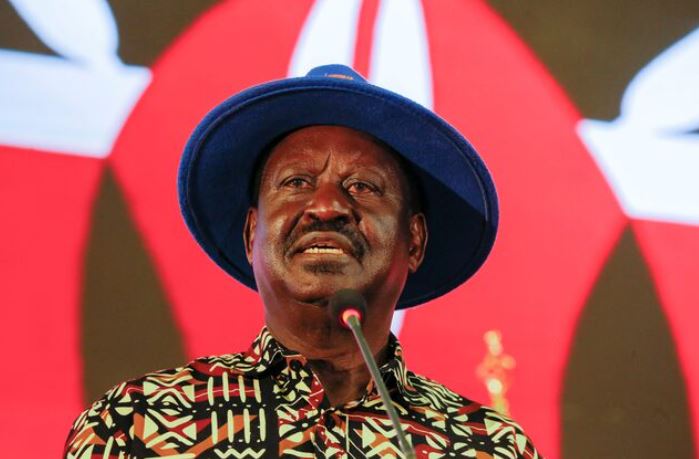
Raila Odinga decried that the country is suffering from a lack of responsive institutions, underfunded public services, a compromised judiciary and an inefficient executive.
Former Prime Minister Raila Odinga has called for an “Intergenerational National Conclave” to discuss issues raised by Kenyans as the country marked the 35th anniversary of the Saba Saba, amid protests in various parts of the country.
Speaking on Monday during the Saba Saba commemoration at Serena Hotel, Odinga said Kenyans are yearning for leadership and programmes that advance economic fairness, social justice and political freedom.
More To Read
- Saba Saba: CS Murkomen expresses regret over Nairobi lockdown, emphasises security first
- 10 dead, 29 injured and two abducted as Saba Saba protests rock 17 counties - KNCHR
- Raila Odinga rekindles spirit of 1990 Kamukunji rally, honours Kenneth Matiba and Charles Rubia
- Saba Saba: Raila Odinga skips Kamukunji rally, blames police blockades
- DIG Gilbert Masengeli insists Nairobi CBD accessible despite police barricades
- Two shot in Kangemi amid Saba Saba protest chaos
He decried that the country is suffering from a lack of responsive institutions, underfunded public services, a compromised judiciary and an inefficient executive.
“There is no doubt that the country is yearning for legislation that makes our institutions more responsive, programs that ensure adequate funding for services that touch wananchi, changes that make our Judiciary free, efficient and progressive, and measures that make the executive more accountable and efficient,” he said.
He said the inclusive intergenerational national conclave should gather views from all sections of society and develop a binding reform agenda.
“I propose an inclusive intergenerational national conclave to hear our people across all divides and come up with irreducible reforms and changes necessary to take the country forward,” he said.
The call for dialogue follows renewed anti-government protests led by a frustrated youth population decrying high taxes, unemployment, corruption and repeated police brutality. Youths led by Gen Z have recently held protests across the country, against what they describe as a failing system, rampant police brutality, abductions and extrajudicial killings.
To quell the anger, Odinga emphasised the need to return urgently to the stalled agenda of police reforms and enhance citizen-police relations.
“I propose that the country urgently returns to the agenda of comprehensive police reforms, focusing on enhancing accountability, transparency and improving police-to-people relations,” he said.
He also emphasised that it was time for the country to confront the roots of impunity and corruption across all branches of government.
“We must end impunity and corruption within our three arms of government. Our leaders must become modest, ethical, humble, and accountable,” he said.
He further called for sustainable mechanisms to confront corruption, strengthen accountability frameworks, and ensure that public officials are held responsible for their actions.
“I propose that the conclave envisaged comes up with better and sustainable ways for addressing transparency, accountability, and impunity, especially with regard to corruption and ensuring that leaders are held accountable for their actions,” Odinga said.
The ODM leader further proposed that the dialogue forum develop a comprehensive and sustainable strategy to address youth unemployment and to expand opportunities across both the formal and informal sectors.
He said the proposed national forum must be credible, inclusive and guided by a clear mandate. He said it should also be subjected to a referendum.
“Such a national conclave must have clear terms of reference and be populated and helmed by the most serious and sober minds in our nation. The proceeds of the national dialogue be subjected to a referendum,” he said.
The opposition leader described the current national struggle as one centred on governance and economic justice. According to Odinga, the biggest challenge facing Kenya today and into the foreseeable future is “how to expand economic opportunity and lift particularly young Kenyans out of poverty, exclusion, and unemployment.”
He reflected on the historical significance of the Saba Saba movement, saying that many of its founding ideals had been embraced as part of Kenya’s national aspirations.
“It is clear that many of the ideals espoused by the dreamers behind Saba Saba have become part of the national aspiration. We are a better nation because Saba Saba happened. We have a duty and a responsibility to honour the men and women who dared to dream and to turn out at a time of great peril to themselves and their families,” he said.
He however lamented that 35 years later, the country is again engulfed in a new wave of unrest and political activism, and called for reflection on the way forward.
“The question we have to ask ourselves is; where do we go from here? Do we embrace chaos or a coming together of minds and country?”
He said that as one of the architects of the 1990 Saba Saba movement, he chose unity over division.
“As a living architect of the events leading to Saba Saba, I choose a coming together of minds and country in the interest of the country I long fought for its progress, stability and prosperity,” Odinga said.
He also regretted that the day has not been consistently recognised or celebrated over the years.
“It is regrettable that the recognition and remembrance of Saba Saba has not been consistent in its short 35-year history. One moment it is important. The next moment it is not,” he said.
Marking the anniversary, Odinga said the goal was to clarify Saba Saba’s purpose and legacy, particularly the foundation it laid for the current democratic dispensation.
He went on to criticise some individuals who had once opposed the movement but are now attempting to capitalise on its legacy.
“It is quite unfortunate that some of the people we were fighting then and who sanctioned those arrests are trying to hide behind Saba to advance their political fortunes,” he said.
Odinga said the movement’s mission was to fulfil the Kenyan dream of eradicating poverty, ignorance and disease.
“The movement stood for a peaceful and constitutional change of guard. That is the reason it focused singularly on the amendment and later the overhaul of the Constitution. These features are what made Saba Saba succeed,” he said.
Top Stories Today

